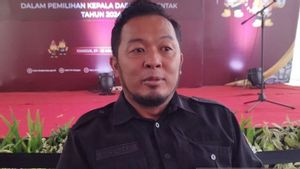JAKARTA - China has again carried out surveillance of foreigners entering their territory. But this time it was targeted at journalists and international students.
The regulation only applies in one of China's largest provinces, Henan. Where their security officials set up surveillance systems used to track journalists and international students among other suspicious people.
The report obtained by Reuters on Tuesday, November 30, was first published on the Henan provincial government's procurement website. A tender document drawn up July 29 detailed plans for a system that could compile individual files of interested persons coming to Henan.
The security system will use 3,000 facial recognition cameras that are connected to various national and regional databases. The 5 million yuan contract was awarded to Chinese technology company Neusoft on September 17.
In the contract, China Neusoft is required to complete the construction of the system within two months after signing the contract. Unfortunately, Reuters could not confirm whether the system is currently operational.
China is trying to build one of the most advanced surveillance technology networks in the world, with millions of cameras in public places and increasing use of techniques such as smartphone monitoring and facial recognition.
According to reports, the nearly 200-page tender document from Henan's public security department gave no reason why they wanted to track down journalists or international students. Others, they also want to track down women from neighboring countries who are illegal residents.
The system will be operated by 2,000 officials and police, and stipulates that journalists will be divided into three categories red, yellow, green, in descending order of risk.
A warning will be given if a journalist while in Henan registers at a hotel, buys a ticket or crosses the provincial border. But now that it has become widespread, public access to tender documents was disabled yesterday.
The English, Chinese, Japanese, Arabic, and French versions are automatically generated by the AI. So there may still be inaccuracies in translating, please always see Indonesian as our main language. (system supported by DigitalSiber.id)









